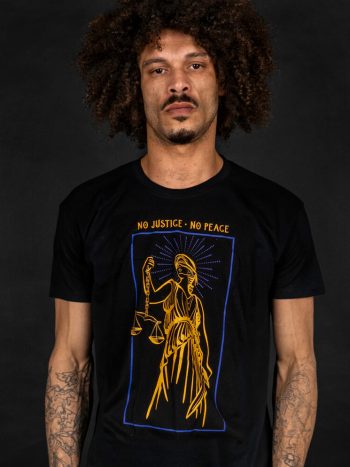Let's take a brief look at the history of progressive activism
It was arguably the peaceful resistance of Dr. King’s Civil Rights Movement, which itself was inspired by the non-violent methods of Gandhi in opposing British Imperial rule in India, that has left the world with the impression that progressive political activism has historically been peaceful, and that the volatile protests of more recent years are a phenomenon of the 21st century. This is not, however, the case.

You need to know about Chartists
Champions of progressive causes have historically often turned to violent means to achieve their goals or raise awareness of their plight, particularly with the advent of technology, the rise of the working and middle classes, and the decline of the dominance of the aristocracy. An early example of this is the case of the Chartists, a UK-wide movement of working class people attempting to secure better working conditions, the vote, and improved electoral conditions in the late 1830s to 1850s.

Wage cuts imposed on workers led to the Chartists ordering general strikes, and the arrest of Chartist activists caused violent retaliation, the most extreme case of which came in 1839 with the Newport Rising. A march of almost 10,000 Chartists, armed with homemade weapons, attempted to liberate some of their compatriots who had been arrested and imprisoned in Newport, Wales, but were met by an overwhelming response by the British Army. A total of 22 Chartists died in the fighting.
Although Chartism did not directly lead to the reforms it demanded, as support for the movement faded over the 1850s and ’60s and other progressive groups (who were seen to be less radical) gained traction, its ideals did ultimately contribute to the Reform Act of 1867, legislation which enfranchised a greater portion of the British population; if Chartism had not been as volatile during the height of its popularity, it is unlikely the Reform Act would have happened when it did, or been as extensive as it was.
Enter John Brown
Yet perhaps the most extreme example of progressives using violence is John Brown, an American whose actions became one of the catalysts of the US Civil War. A devoted abolitionist and committed Christian, he could well be considered America’s first domestic terrorist.

Raised to hate slavery by his parents, as an adult Brown worked actively with the Underground Railroad in helping escaped slaves make their way to Canada; the British Empire had outlawed slavery decades earlier, and in the mid 19th century the Royal Navy fought a long campaign to break the Atlantic slave trade. Under British Imperial rule, therefore, slaves were automatically freed upon crossing the Canadian border or setting foot on British ships.
Brown’s name was made, however, in 1854’s ‘Bleeding Kansas’ crisis. When the state of Kansas was formed and the question over whether it should be a free or slave state arose, it did not take long for the political dispute (which involved significant electoral fraud from both sides) to become violent; although as a Christian, Brown fundamentally opposed violence, he came to believe that the question of slavery in America would only be decided by armed struggle, and traveled with his sons to fight for the free faction.
Brown became famous as a guerilla warrior, even defeating the state militia’s troops in battle, and then spent the years prior to 1859 continuing to help run slaves to Canada while planning to instigate a slave uprising in the South. He decided upon the target of Harpers Ferry, where there was a federal arsenal which he planned to capture and strip in order to equip the liberated slaves.
Brown attacked the town with a gang of followers, which resulted in the deaths of seventeen people and the wounding of many more; the operation failed when a company of US Marines arrived to reestablish order. Brown himself was captured, as were some of his followers; the remainder had been killed in the fighting or managed to escape (those who got away later fought with the Union armies against the Confederacy in the Civil War).
Even though Brown’s raid failed and he himself was hanged a few months later, he arguably accomplished his goal of ending slavery with violence, since his assault on Harpers Ferry was one of the preludes led to the Civil War. The Union victory of 1865 resulted in the abolition of slavery in the USA.
To the North he was a hero, and even those who disapproved of his violent methods – such as Abraham Lincoln and Frederick Douglass – admitted that everything he had done was with the aim of making black people free. Although he may be considered America’s first terrorist, his moral cause was justified: perhaps the most fitting tribute to Brown came from Malcolm X, who said that although white people would be barred from membership in his black activist groups, John Brown would have been accepted.
The Suffragettes
Slavery was not the only issue that came to prominence during the 19th century which led to progressives turning to violence. The suffragette movement, which fought to have women granted the right to vote, was no ordinary feminist movement. Suffragettes used aggressive tactics in the early 20th century when its attempts at reasoned persuasion failed. Postboxes were firebombed and Parliament stormed, while activists chained themselves to railings outside public buildings or went on hunger strikes after their arrest.

The authorities responded with cruel methods to attempt to curtail the movement, force feeding prisoners on hunger strike and brutalising rioting suffragettes, some of whom reported police officers committing acts of sexual assault. Nevertheless, the suffragettes persisted, only suspending their campaign at the outbreak of the First World War. Women over 30 years of age were granted the right to vote in 1920, with general enfranchisement for all adult women coming into effect in 1929.
Peaceful progressive activism is a recent idea

The idea that progressives are peaceful, therefore, is historically comparatively a recent idea. The belief that progressives do not endorse violent means is most likely a result of the efforts of Gandhi and Dr. King, and the global prominence enjoyed by their campaigns. Yet recent centuries prove that both men were, in fact, very much exceptions to the rule that progressive causes often (and successfully) employ violent activism to advance their aims.
PROTEST T-SHIRTS
-
£20Add to WishlistRemove from WishlistAdd to Wishlist
-
£20Add to WishlistRemove from WishlistAdd to Wishlist
-
£20Add to WishlistRemove from WishlistAdd to Wishlist

























